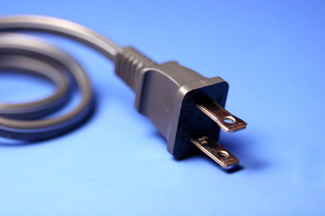Sustainability plan expected to save the university more than $5M over time

Kesha Williams
April 18, 2011
Since the ECSU Board of Trustees adopted a sustainability policy in March of 2010, the university has taken several steps to effectively manage its resources.&nbsp The core value of tangibles included water, energy and other natural resources. Strategies for implementation included: a) systematic integration of sustainability principles, b) impact on master planning, c) design and construction implications, d) facility operations and maintenance, e) climate change mitigation and renewable energy, f) transportation, g) recycling and h) environmentally preferable purchasing practices. A sustainability steering committee has worked diligently to put these plans into action.
First, the committee established some key contacts to assist with the plans. ECSU sought grants, public/private partnerships and collaborations with independent sponsors as alternative resources. These associations allowed ECSU to further develop sustainable projects that impacted the campus both through administrative and student-based activities and community-based outreach programs.
One of these partnerships was with the Environmental Defense Fund (EDF).&nbsp EDF has established itself as a nonprofit environmental advocacy group dedicated to issues, including global warming, ecosystem restoration and energy conversation.&nbsp During the summer of 2010, EDF placed an intern on ECSU’s campus. The purpose of this internship was to identify measurable energy savings that could be achieved through best practices, behavior modifications and innovative technologies such as the deployment of virtual servers. This project identified savings of approximately $300,000 at an estimated cost to ECSU of $ 59,000 and a payback period of 1.8 years. When implemented, these savings project yearly carbon dioxide reductions of 190 tons annually and 370,000 in electrical kilowatt savings.&nbsp
When the time came to consider energy consumptions, the committee took a close look at the kind of energy university buildings consumed.&nbsp ECSU secured a contract with Honeywell Corporation to identify energy enhancements in select buildings on campus, thus making the campus more sustainable.&nbsp These enhancements are guaranteed by Honeywell to save in excess of $5,000,000 over a 14-year period and will be financed through a commercial loan. The loan will be repaid through the guaranteed savings.&nbsp Once the loan has been repaid, ECSU can use future savings to continue to enhance the campus’ sustainability efforts.
In general, the following activities comprise the types of projected savings in selected buildings on campus: 1) upgrade lighting and controls, 2) water conservation, 3) utility load management, 4) PC power regulation, 5) digital dedicated heat recovery chillers and 6) heating and cooling digital control upgrades.
Students at ECSU have also been actively involved in researching and establishing sustainable actions. Their campaign is entitled "BE BLUE, GO GREEN." In addition, two student leaders were identified to participate in the Green For All Fellowship and Academy Program.
The Green For All Fellowship and Academy Program aims to expand, educate and engage the base of support for climate solutions and a clean-energy economy in America. Green For All Fellows are on-the-ground leaders in the movement to create an inclusive green economy strong enough to lift people out of poverty.
Robert Gaines, special assistant to the Chancellor at ECSU and a member of the sustainability steering committee, says there are numerous steps a university can take to effectively manage its resources over time.
"The committee identified cost efficient methods to reduce energy consumption on campus. We are pleased that the students embraced the green initiatives that we’ve introduced up to this point," Gains said.
"In the future, the construction of university buildings must meet or exceed Leadership in Energy &amp Environmental Design (LEED) standards. The savings that we reap from those measures will reflect some of the most energy efficient changes we can make. Heating, cooling, lighting and providing water to buildings are, after all, some of the largest expenses you face when educating and housing students on campus."
Mr. Robert Gaines, Special Assistant to the Chancellor, contributed to this story.

